Spinning Up Three New Restaurants in Small-Town New York
How a globetrotting chef and baker are changing the character of Livingston Manor's literal Main Street.
With her wife Lily Price, chef Erin Ellis has opened two restaurants in Livingston Manor, New York. First was the Walk In, a pandemic pivot to grab-and-go, which took off with a vintage Southern biscuit recipe among other things. Next they opened the Neon Croissant bakery across the street, and now they’re working on a new Mexican restaurant down the block.
I read that you and Lily are both from the South. Where did you grow up?
I was born in Florida. My parents moved us when I was around six, and I grew up in Bardstown, Kentucky, the “Bourbon Capital World.” Lily grew up in Savannah, Georgia. So we’re both Southerners.
How did you and Lily get interested in working in restaurants?
My dad’s a chef as well. He graduated from the Culinary Institute in 1976, and I worked in restaurants when I was a kid. He and my mom opened their first restaurant when we moved to Kentucky. From there, they had three other restaurants. They only retired recently. So I grew up in it—started washing dishes at my parents’ place when I was 11 years old. Then I cooked with my dad for a while. When I was 20, I went to the Culinary Institute too. My dad and I opened a place together in Kentucky, and then I ended up moving to Savannah and cooked at a few places there. And that’s where I met Lily.
Lily’s parents both worked in restaurants while she was a kid as managers and servers and things like that. She worked at a family friend’s restaurant for many years throughout college.
Then after the two of you met, you decided to go traveling together?
When I met Lily, she was already traveling. She would spend three months traveling, then come home and work for six months, back and forth. So when we first met, she was kind of like, “I don’t know how this is going to work.” I kept working for about a year after we met, then I quit my job and moved to Vietnam with her.
What was that move like?
Amazing, crazy, insane, but awesome. It was a really cool experience.
Having worked for a number of years in American restaurants by that point, how was it different for you to be working at a restaurant in Vietnam?
They’re still very new to the idea of restaurants as we think about them. They almost don’t even have restaurants.
You mean like the classic, traditional Western idea of restaurants?
Yeah, it’s so much more about street food, vendors, things like that. It’s very much a family dynamic—they all work so hard, and they work together. There’s not that sense of competition. It’s pretty incredible. It can be frustrating at times, because our way of doing things in restaurants is completely opposite from the way they do things.
What do you mean by that?
It’s hard to explain. For example, I opened a restaurant over there, and I would come in every single morning while they were still doing construction. By the middle of the day, the entire construction crew would be taking naps in the booths of this restaurant. And that’s just totally, completely normal for them.
So they were hard workers, just not with that Western sense of urgency you’re used to in the restaurant business.
No. No.
How long were you in Vietnam?
We were there for almost a year, and then we moved from Vietnam to Portugal.
What prompted that particular choice?
We realized that because of the way the government is run in Vietnam, and the corruption of the police—we knew we would never be able to open our own place successfully and maintain a business there. I mean, the police came by every day looking for money. And plus the pollution was really wearing on us really hard. The smog was really difficult.
So we Googled “best quality of life place to live.” Lisbon was one of the top results, and it was also an affordable place to live. We just decided to pick up and move. We had already traveled all over Asia, and we were looking to get closer to home as well.
I worked at a fantastic restaurant in Portugal called Flow, and a restaurant group there as well. My station was a massive wood-fire grill and oven at this huge restaurant. I had a really amazing experience, though I was the only English-speaking person in the kitchen, so it was very difficult in the beginning.
You had to learn Portuguese on the job?
Yeah, I had to learn kitchen Portuguese really quickly. Luckily, most of the young kids speak English, so they were able to translate quite a few things to me. But in the middle of service, it was all Portuguese.
And after Portugal, you came to New York City.
Yeah, we had issues with visas. We had to move back home, and we were trying to figure out what the hell we should do. No car, no furniture, no money, nothing. New York is one of the only places you can go to with nothing! We had both lived there already, so we were comfortable, and we spent most of our time in Park Slope. I worked at Aquavit for a while in Midtown, then Wallsé in the West Village, and then became a private chef.
How did you make the move to upstate New York?
I worked for an agency called the Culinistas. They placed me in different homes throughout the city, and Aspen, the Hamptons, some in Connecticut. So traveling quite a bit. But then Lily was a nanny as the time for a pretty famous person, and the family was looking for a private chef as well.
I started working for them too. Lily and I worked for them for almost two years. But then the family wanted to downsize their staff, we got laid off, and that’s when we bought our home in upstate New York.
This was before the pandemic, right? What got you interested in the area?
Our roommate and best friend in Park Slope bought a home in Ellenville. We came to visit a few times, and we were just looking at properties in the area. We found this tiny little bungalow on auction for ten grand. We were like, even if we don’t live there, we should just buy it!
That’s pretty cheap!
Yep! So we bought this tiny little bungalow, fixed it up ourselves, and we lived there for two years. It was in Loch Sheldrake, which is just outside of Liberty. We worked for a big hospitality group up here called Foster Supply. They run a bunch of restaurants and hotels in upstate New York. Lily was mostly working for them—I would pinch-hit every once in a while when they needed somebody.
We got to know a lot of people through that restaurant work, and we got to know the area a lot better. That’s how we found Livingston Manor. While Lily was working, a customer came in who owned the building where the Walk In is now. They got to talking to Lily about needing renters for the space, and that’s how it all started.
And what year was that?
That would have been in 2019.
Had you and Lily previously talked seriously about opening a restaurant together?
I always knew I would open a restaurant eventually. From the time I went to culinary school, that’s what I wanted to do. For Lily, really, her passion is photography, and she went to school for advertising, but she always had a passion for restaurants too. She just never expected to own one herself. I kind of dragged her into this mess, but we really got seriously talking about it once we completed our home construction.
We were like, what are we going to do? Are we moving back to the city, or are we trying to make a life for ourselves here? And I just knew at that time that I didn’t want to work for anybody else anymore.
You originally wanted the Walk In to be a French bistro, right? What made you want to try that concept?
Just by meeting people, getting to know the area, and hearing what people were looking for at that time, we felt like there was a lack of a middle-ground restaurant. There’s plenty of affordable, casual restaurants. Plenty of chicken wings here. The only other options are $50 plates and tasting menus. Our intention was to open a small, really cozy, elbow-to-elbow French bistro, where you go to get a bowl of moules-frites or a plate of steak frites.
So when the pandemic hit, you had to switch to something else?
We knew by then there was no way people were going to come into a restaurant. We’d already signed the lease at the Walk In space, and we were already a month or two into construction. The landlords were like, “I’m sorry, I don’t know what to tell you.”
Did the landlords cut you any slack?
They gave us a couple of months rent-free. They tried to help us out as much as they could. We had to completely switch gears and change our minds on the entire concept. And that hurt me quite a bit.
The Walk In is really not my style of restaurant. My parents owned a restaurant like that when I was a kid. I always thought I didn’t ever want to own a high-volume, crazy restaurant. But because of the pandemic, it’s what we had to do. We really thought it would just be grab-and-go. But as the pandemic started to relax, people wanted to stay. They wanted to hang out where they could see other people. We had the whole front space of the Walk In just completely empty in the beginning. It turned into something much more than we thought it was going to be, and we were way busier than we could ever have imagined.
That’s a good problem to have, usually.
The Walk In has become a beast. The biscuits weren’t something we were even considering originally. We just thought we’d be a little sandwich and soup-and-salad shop. But the biscuits were introduced because a lot of people were saying they wished they could get a breakfast sandwich in the area. So we said, “All right, well, we’re Southern, so let’s do biscuits.”
We researched and did recipe development, and none of the biscuits we were looking at were able to hold up on a sandwich. They would fall apart, or they were too light and fluffy, or they were too thin and crumbly. But about a month before we opened, Lily’s parents came up to visit, and they brought a gift for us—an old family cookbook that Lily’s family had written a hundred years ago or something. A biscuit recipe was in that book. We tried it out, and after the first bite, we knew—this was it. This was exactly what we were looking for.
So the Walk In opened in February 2021, and then you opened the Neon Croissant across the street in June of the same year. That’s pretty bold to open a second spot so soon after the first.
Oh, no, it was very risky. I’m not a baker. Lily is a very good home baker. I knew that she could do the cookies and cakes and pies and things like that. I knew that she could find and develop great recipes. But as far as the pastry—I was losing sleep about it every single night. I couldn’t figure it out. Were we just going to buy frozen stuff and sell it? For me, ethically, I can’t sell frozen stuff. I just can’t!
After we closed on the bakery space, we said we had to get serious about this. I started researching and practicing and reading. I spent the entire summer obsessing over bread and pastries, and I went to France to learn more. We travel a lot anyway, so we travel for food when we’re off too.
After all that, we knew what the best baking should be like, so we couldn’t stop until we got it where we wanted it to be. It was a hard year, I’m not going to lie, but it’s going well so far.
What was it like scaling up to running two places that quickly?
It was really tough. It was a transition. But we have such a good team, and they’re so dedicated and loyal to us, and they want us to do well. It’s really like a family. Any challenge the business is faced with, they’re like, “All right, let’s do it, let’s figure this out.”
Have you had any trouble with hiring or keeping people?
We’re really lucky. I don’t want to pat myself on the back too soon, but our whole team has stuck with us since the beginning. Now we have 20 to 25 people depending on the season.
We pay our staff very well, and because we’re a high-volume business, they get a lot of tips. They make really good money, but I don’t feel like that’s the only thing that keeps the morale high. It’s a fun place to work. There weren’t a lot of places for young people to work and be accepted around here. All kinds of kids work for us, all kinds of adults works for us.
Considering your career so far, you must have experienced a lot of the traditional toxic kitchen environments out there in the restaurant business.
A hundred percent. And so I clearly decided not to institute that kind of environment.
How do you avoid those kinds of problems as you grow?
Next, we’re opening a Mexican restaurant. I know that I can’t be a chef of all of the restaurants. I have to leave my guys alone. They have to learn to grow and be the boss of their own kitchen. So I try to stay away as much as possible. I try to give them their space. They know what I expect, but I want them to have a sense of ownership. Many times in the past, when I was supposed to be in charge of a kitchen, the owner or the executive chef or whatever would come in and completely redo everything I had done. I had no feeling that I was actually in charge.
But I worked for a restaurant group in Savannah called Daniel Reed Hospitality. They have the same model we do—make it a great place to work, make it a serious food establishment, be proud of what you do, and do it well. That’s what I wanted to carry through in our restaurants, too. It’s a very loving, happy place to work. A good place to be, but also a place where the food is good, the quality of the ingredients is great, and people are working together to eat better.
How did you get the idea to open a Mexican place? Do you have a name in mind yet?
Well, I think we got a little cocky when we opened the bakery. But Lily and I always have concepts in our minds. And we had our eyes on this car wash as a Mexican restaurant that already existed in our heads.
It’s going to be called El Jimmy’s. When I grew up in Kentucky, there was one Mexican restaurant in my hometown called El Jimador’s, and people didn’t know how to pronounce that or what it meant. So people called it El Jimmy’s, and it’s always been my dream to open a Mexican restaurant with that name.
What made you think of putting a Mexican restaurant in a car wash?
We could see the garage doors would be there, and a big outdoor seating area. It just looked like a space where a ton of people could gather. Some friends of ours in town purchased the building, and they came to us asking if we knew a general contractor to work on their car wash.
Were they planning to turn it into a restaurant?
Nope! They didn’t really know what they were going to do with it. They were just going to rent it out to somebody. So we were like, “Hey, perfect!” We own two businesses right across the street, and we live upstairs of the bakery, so we knew it would be the only other space near us where we could do this again. We really jumped on it, though it’s taken some time. We’ve had some issues with contractors and permits and a bunch of nonsense. But that’s okay. I just want to get through the season, and then we’ll focus all our attention on El Jimmy’s.
When do you think El Jimmy’s will open?
Probably beginning of next year.
Opening all these places so quickly—has that changed the character of this small town, in your view?
We kind of have this uptown feel going on now!
It sounds like you’re taking over the whole block.
I know a lot of people aren’t happy about it—like some of the locals.
They don’t like the changes, or the influx of newcomers or out-of-towners?
It’s the out-of-towners, rents going up—of course that’s not our fault, that was COVID. But I know we have drawn tons of people from out of town. The traffic is really bad, especially between the two businesses. There’s always people walking across the street.
I heard the town might put in a crosswalk for you.
They’ve been saying that, so we’re waiting for it! But our feeling is that this town was going this way anyway. It was going to happen regardless. The town was destitute for a long time, and now we’re giving a lot of these kids a job, and a group to be in, and a safe place to be—where before they didn’t have those options.
Adding 25 jobs in a small town is a pretty big impact.
Yeah, it’s a big operation. And all of our kids live here. They’re all locals. Half of them walk to work. We try to keep it in the community. We try to voice that and hope that people can get on board eventually.



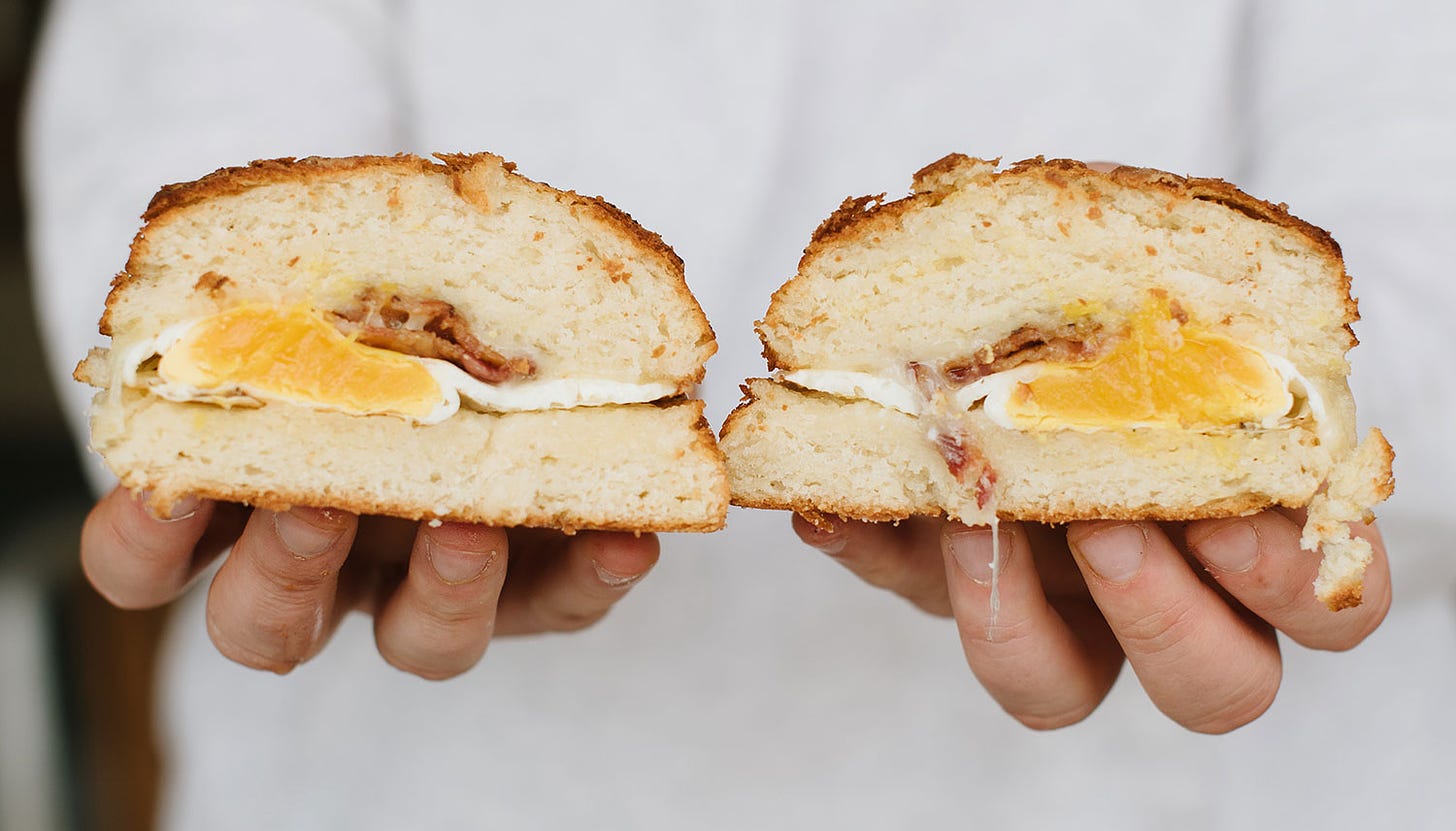
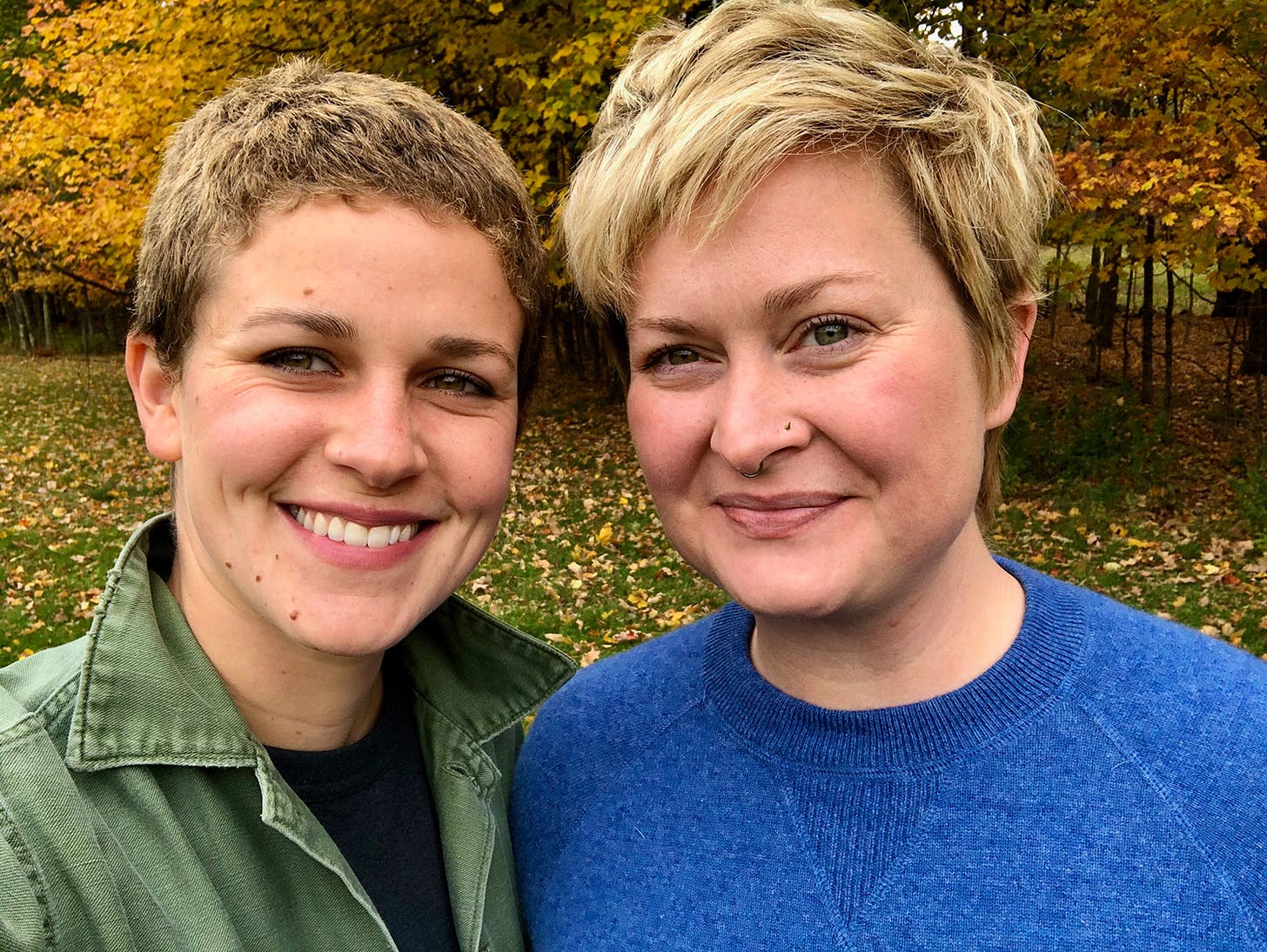

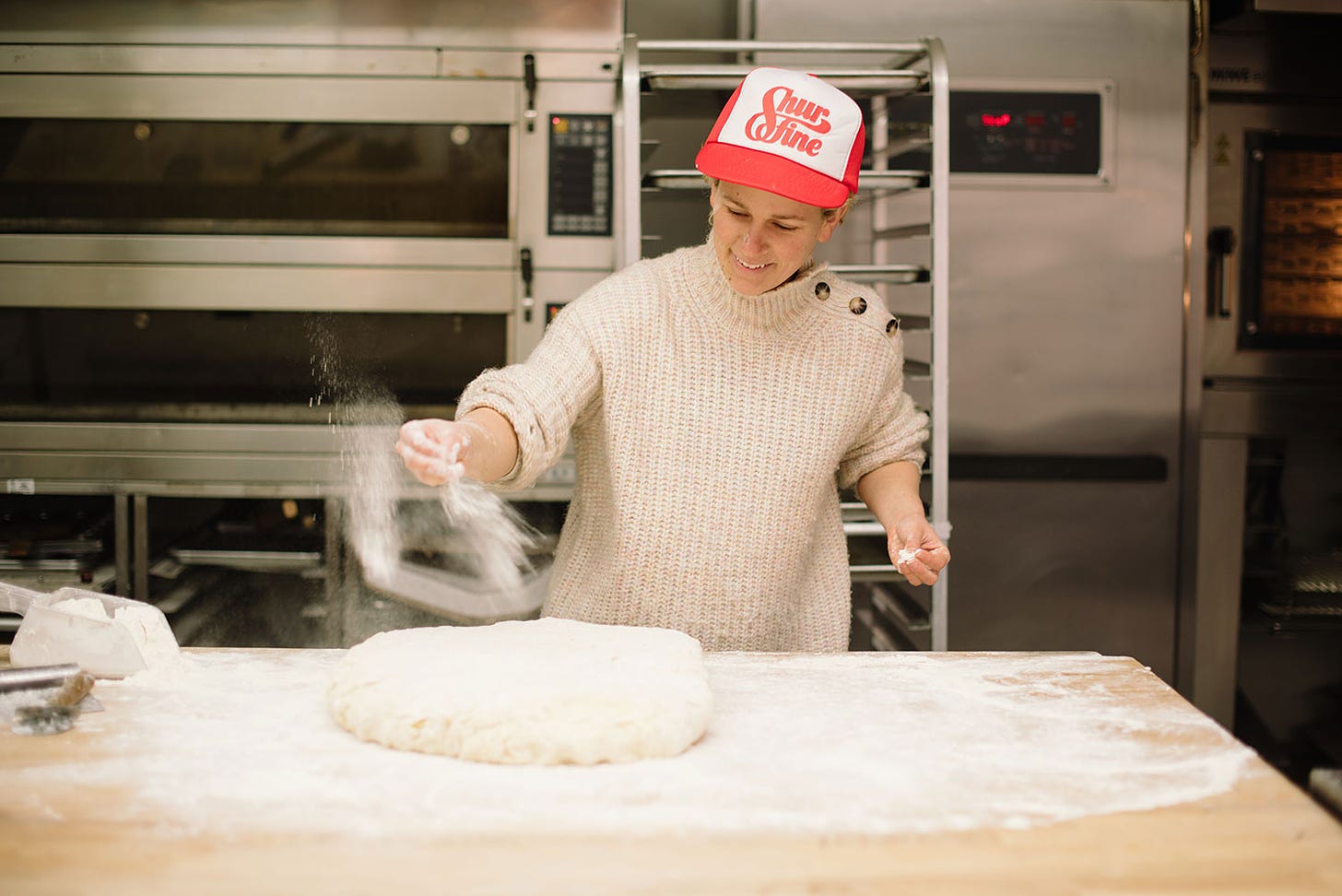
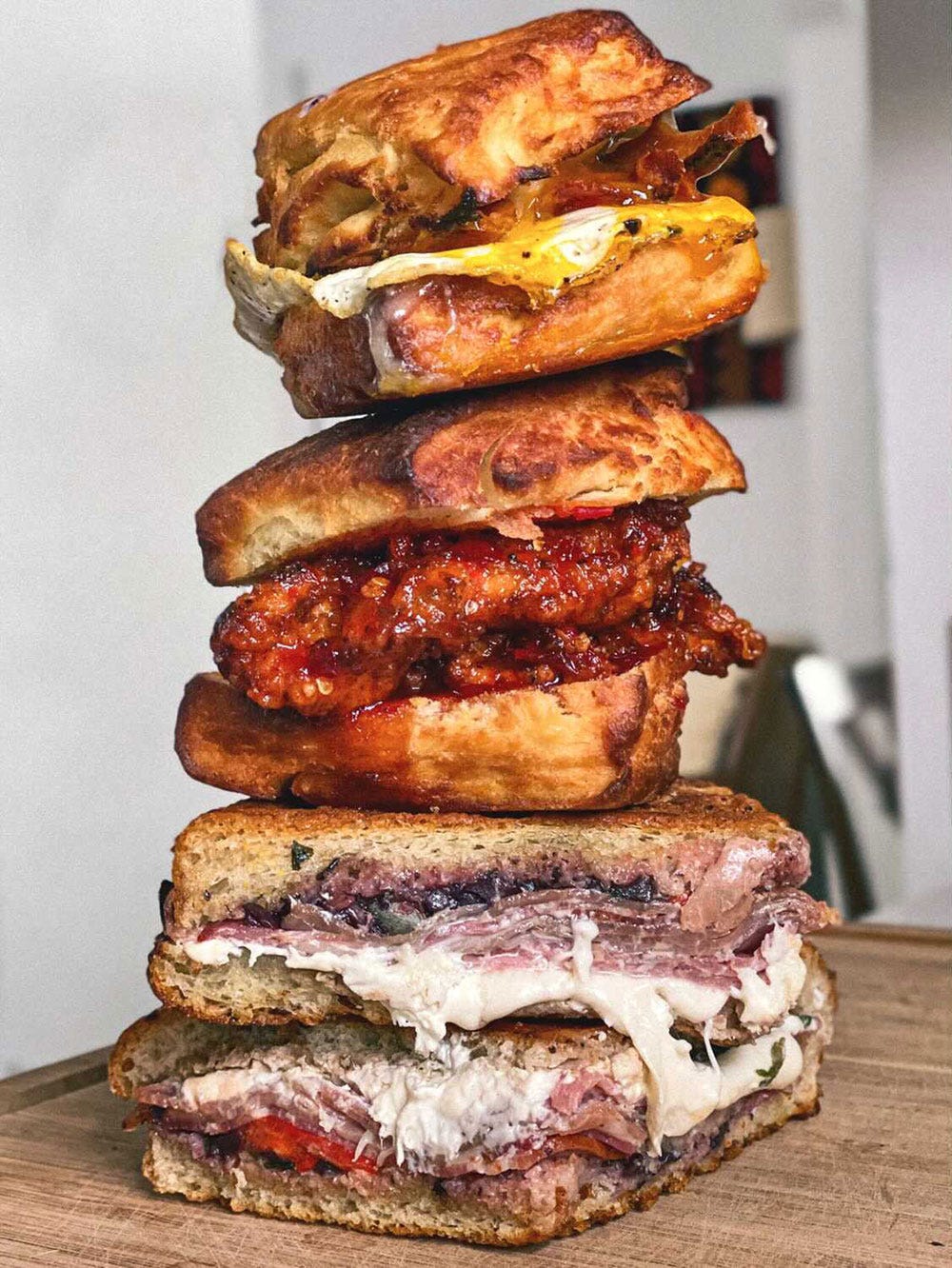
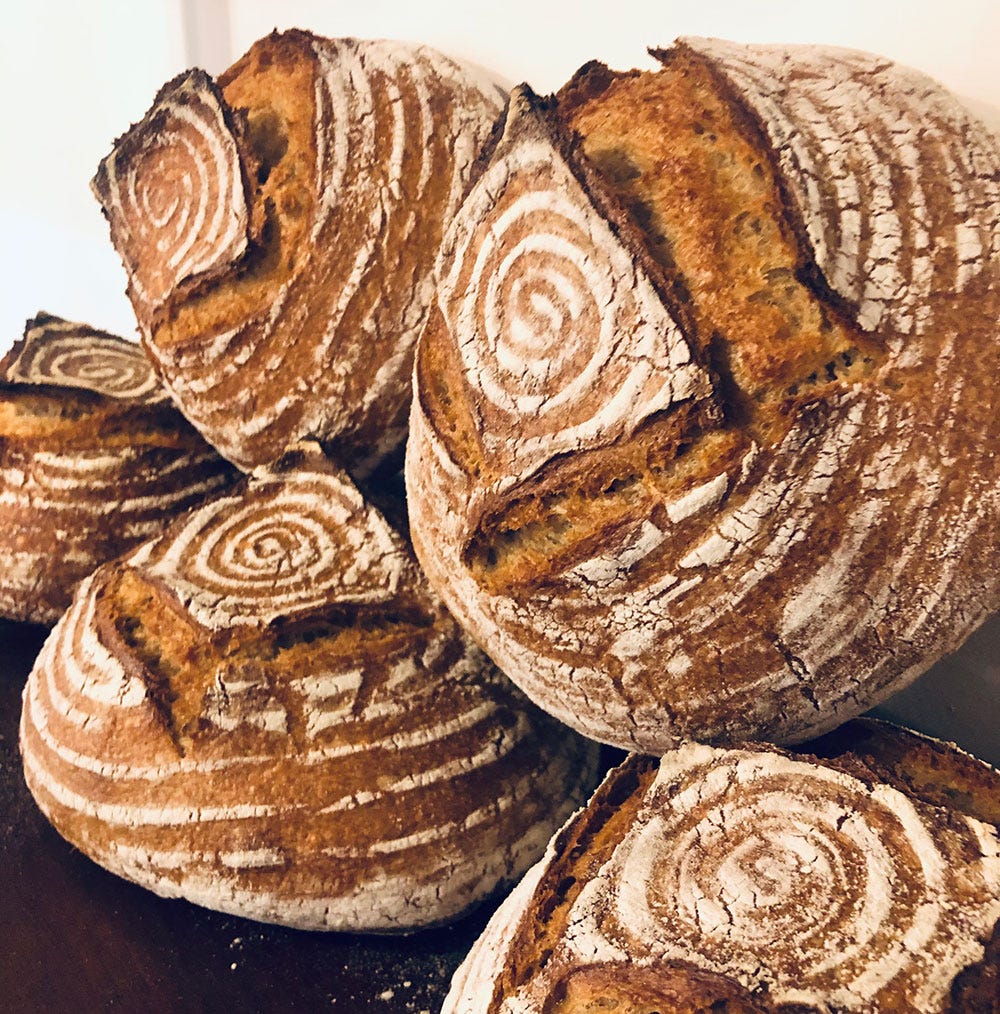

Loved this!! What a creative journey.